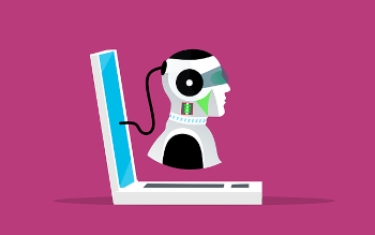A discussion about AI contributions to the Debian project started after the Gentoo Linux project said in April it was banning the use of generative AI tools like AI and ML, due to copyright, ethical and quality concerns.
Gentoo is a project which created packages from source through user compilation, Installing Gentoo is thus quite a laborious process.
The Linux Weekly News site said the Debian discussion about the issue had been begun on 2 May by Tiago Bortoletto Vaz who suggested that the project should have a policy on using AI and ML tools to generate content.
|
|
"Perhaps the most important step now is to get an idea of how Debian folks actually feel about this matter. And how we feel about moving in a similar direction to what the Gentoo project did."
Former Debian leader Sam Hartman said: "AI is just another tool, and I trust DDs [Debian developers] to use it appropriately.
"I probably would not use AI to write large blocks of code, because I find that auditing the quality of AI generated code is harder than just writing the code in most cases.
"I might:
- "use debgpt to guess answers to questions about packaging that I could verify in some manner.
- "Use generative AI to suggest names of projects, help improve descriptions, summarise content, etc.
- "See if generative AI could help producing a message with a desired tone."
Another developer, Russ Allbery, said he was dubious of the approach taken by Gentoo because it was - as they admitted - unenforceable, "which to me means that it's not a great policy. A position statement, maybe, but that's a different sort of thing".
He added: "I think the piece that has the most direct impact on Debian is if the output from the AI software is found to be a copyright infringement and therefore something that Debian does not have permission to redistribute or that violates the DFSG (Debian free software guidelines).
"But we're going to be facing that problem with upstreams as well, so the scope of that problem goes far beyond the question of direct contributions to Debian, and I don't think direct contributions to Debian will be the most significant part of that problem."
A fourth developer, Charles Plessy, raised another point. "As a Debian developer I refrain from using commercial AI to generate code used in my packaging work or native packages, because I think that these systems are copyright laundering machines that allow to suck the energy invested in Free Software and transfer it in proprietary works (and to a lower extent to un-GPL works)," he said.
"If I would hear that other Debian developers use them in that context, I would seriously question whether there is any value to spend my volunteer time in keeping Debian/copyright files accurate to the level of details our policy asks for.
"When the world and ourselves will have given up on respecting free software copyrights and passing attribution, I will not see the point spending time doing more than the bare minimum, for instance like in Anaconda, where you just get Licence: MIT and the right to download the sources and check yourself the year of attribution and names of contributors."











































